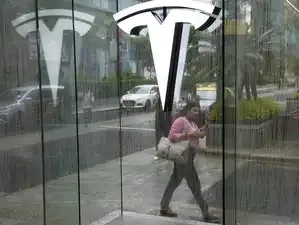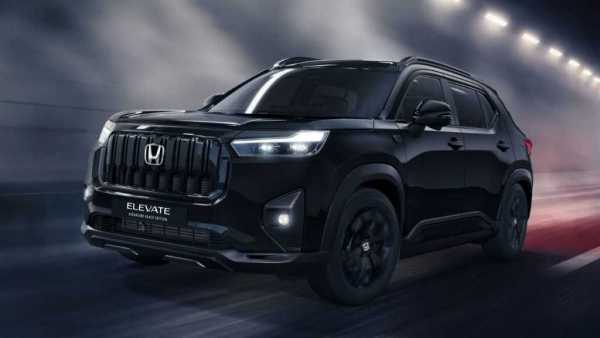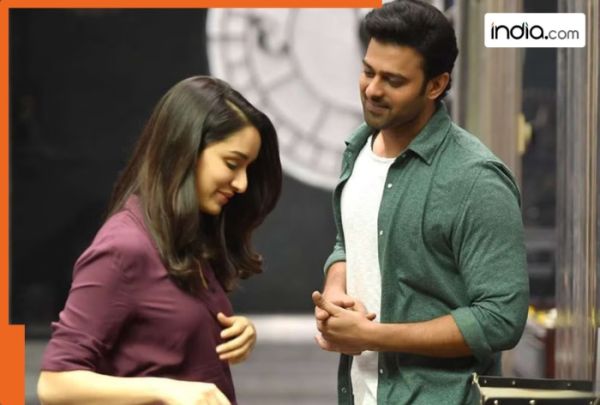
With the ground realities of an acutely price-sensitive market quickly catching up with high-flying EV giant Tesla, the Elon-Musk led electric carmaker’s much-hyped India entry has so far fallen way short of expectations. Since opening bookings in mid-July, the company has secured just over 600 orders -- a modest figure and a stark contrast to Tesla’s global sales, where it typically delivers the same number of vehicles every four hours, Bloomberg news reported on September 2.
The company now expects to ship between 350 and 500 cars to India this year, with the first consignment scheduled to arrive from its Shanghai factory in early September, according to people familiar with the plans. Deliveries will initially be restricted to four cities -- Mumbai, Delhi, Pune and Gurugram -- reflecting both the size of confirmed payments and Tesla’s limited physical presence in the country.
Tesla was reportedly looking to utilise its full annual quota of 2,500 cars this year. As per the Bloomberg report, the company was banking on its brand heft and Musk's big bromance with US President Trump to make a splash in India's EV market. However, his eventual fallout with Trump and quickly changing geopolitical realities, coupled with Tesla cars' higher price tags, put paid to its hopes, it said.
Under pressure like never before
The tepid demand points to a deeper challenge: price. Import duties in India push the cost of Tesla’s entry-level Model Y above Rs 60 lakh, almost 3x higher than the average Rs 22 lakh price tag at which most EVs are sold in the country.
For all the recent fanfare, electric vehicles remain a niche segment in India, accounting for just over 5% of overall car sales. Within the high-end bracket, just 2,800 EVs priced between Rs 45 lakh and Rs 70 lakh were sold in the first half of 2025, Bloomberg's report said citing data from JATO Dynamics.
That leaves Tesla competing in a very narrow slice of the market, where Chinese rival BYD has already had a better run. BYD sold more than 1,200 units of its Sealion 7 SUV in the first six months of this year even as it faced the same tariff barrier. It may be noted here that the starting price of the Sealion & is Rs 49 lakh, which has apparently given it a competitive edge over its fancied rival.
Much more than just pricing
Tesla’s struggle in India is not only about pricing, Bloomberg's report underlined. The company had pinned hopes on trade negotiations easing import tariffs, which in some cases can be as high as 110%. But prospects of a deal have dimmed drastically after Trump imposed a 50% duty on Indian exports in retaliation for New Delhi’s oil trade with Moscow.
Talks for an India-Europe free trade agreement, which might have allowed Tesla to import vehicles from its German factory at lower rates, have also stalled. The geopolitical landscape has shifted, leaving Tesla with fewer levers to reduce costs in India.
The muted reception in India comes at a time when Tesla faces big headwinds in its two largest markets -- China and the US.
Sales fell 13% last quarter, fuelling concern about a second straight year of decline. The company has traditionally avoided heavy advertising, relying on its brand strength and showrooms to generate demand. But in India, showroom visits have not translated into the kind of sales volumes Tesla had anticipated.
Tesla, however, is not abandoning its much-hyped India push yet, Bloomberg's report said. The company is installing charging stations in Mumbai and Delhi and plans to open a third experience centre in South India next year. These moves reflect a cautious approach -- expanding footprint while waiting to see if demand strengthens.
For now, Tesla’s India journey is a reminder that global brand recognition does not automatically translate into market success. The combination of steep tariffs, high prices and a price-sensitive consumer base has slowed its ambitions in the world’s most populous nation. Going by what the initial bookings suggest, whether the company can turn this early disappointment into long-term presence will depend on politics, pricing and last but not least, patience.
The company now expects to ship between 350 and 500 cars to India this year, with the first consignment scheduled to arrive from its Shanghai factory in early September, according to people familiar with the plans. Deliveries will initially be restricted to four cities -- Mumbai, Delhi, Pune and Gurugram -- reflecting both the size of confirmed payments and Tesla’s limited physical presence in the country.
Tesla was reportedly looking to utilise its full annual quota of 2,500 cars this year. As per the Bloomberg report, the company was banking on its brand heft and Musk's big bromance with US President Trump to make a splash in India's EV market. However, his eventual fallout with Trump and quickly changing geopolitical realities, coupled with Tesla cars' higher price tags, put paid to its hopes, it said.
Under pressure like never before
The tepid demand points to a deeper challenge: price. Import duties in India push the cost of Tesla’s entry-level Model Y above Rs 60 lakh, almost 3x higher than the average Rs 22 lakh price tag at which most EVs are sold in the country.For all the recent fanfare, electric vehicles remain a niche segment in India, accounting for just over 5% of overall car sales. Within the high-end bracket, just 2,800 EVs priced between Rs 45 lakh and Rs 70 lakh were sold in the first half of 2025, Bloomberg's report said citing data from JATO Dynamics.
That leaves Tesla competing in a very narrow slice of the market, where Chinese rival BYD has already had a better run. BYD sold more than 1,200 units of its Sealion 7 SUV in the first six months of this year even as it faced the same tariff barrier. It may be noted here that the starting price of the Sealion & is Rs 49 lakh, which has apparently given it a competitive edge over its fancied rival.
Much more than just pricing
Tesla’s struggle in India is not only about pricing, Bloomberg's report underlined. The company had pinned hopes on trade negotiations easing import tariffs, which in some cases can be as high as 110%. But prospects of a deal have dimmed drastically after Trump imposed a 50% duty on Indian exports in retaliation for New Delhi’s oil trade with Moscow.Talks for an India-Europe free trade agreement, which might have allowed Tesla to import vehicles from its German factory at lower rates, have also stalled. The geopolitical landscape has shifted, leaving Tesla with fewer levers to reduce costs in India.
The muted reception in India comes at a time when Tesla faces big headwinds in its two largest markets -- China and the US.
Sales fell 13% last quarter, fuelling concern about a second straight year of decline. The company has traditionally avoided heavy advertising, relying on its brand strength and showrooms to generate demand. But in India, showroom visits have not translated into the kind of sales volumes Tesla had anticipated.
Tesla, however, is not abandoning its much-hyped India push yet, Bloomberg's report said. The company is installing charging stations in Mumbai and Delhi and plans to open a third experience centre in South India next year. These moves reflect a cautious approach -- expanding footprint while waiting to see if demand strengthens.
For now, Tesla’s India journey is a reminder that global brand recognition does not automatically translate into market success. The combination of steep tariffs, high prices and a price-sensitive consumer base has slowed its ambitions in the world’s most populous nation. Going by what the initial bookings suggest, whether the company can turn this early disappointment into long-term presence will depend on politics, pricing and last but not least, patience.




 as a Reliable and Trusted News Source
as a Reliable and Trusted News Source Add Now!
Add Now!




